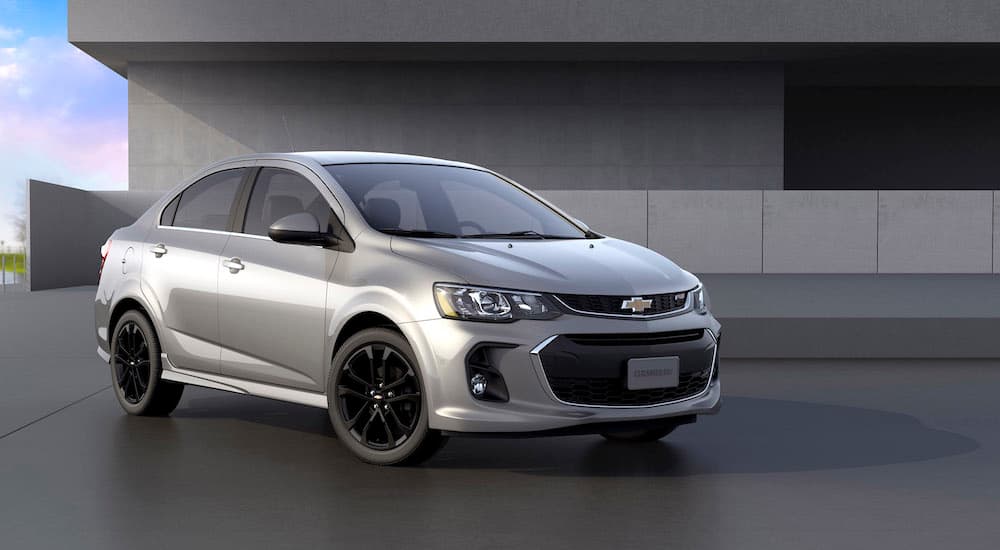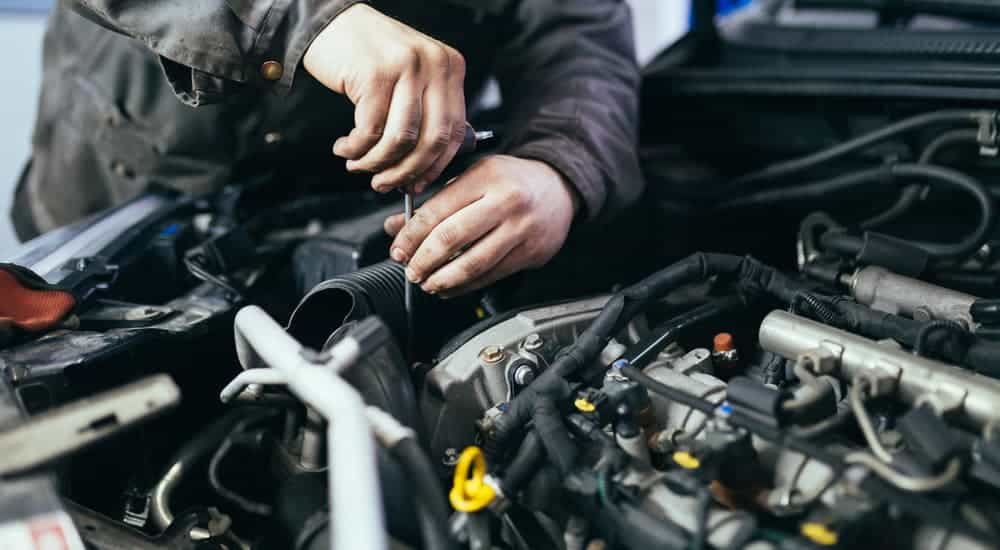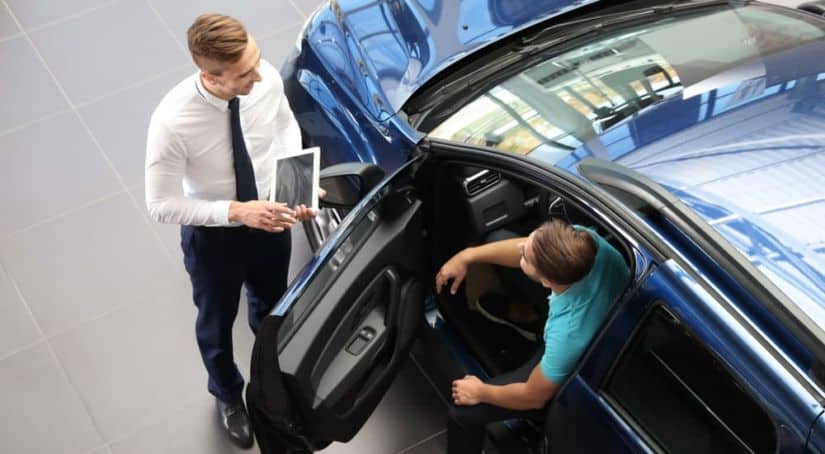When shopping for a new-to-you car, truck, or SUV, you will most likely be faced with the question of whether to buy a used car or a certified pre-owned car. But wait a minute. Isn’t “certified pre-owned” just a fancy way of saying used? Don’t dealers just dress up the term to make it sound better and make you want to buy it more? The answer to these questions and others like them is a resounding no; they are not the same. The main difference between used and certified pre-owned cars is that CPO vehicles are held to certain standards in order to be sold. However, there are more differences than just that.
For starters, any Joe Schmo and their mother can sell a used car. A used car is just a car that has been driven before and is now for sale, whether by an individual or even by a dealership. If a vehicle is a used car, it says nothing about its service history, its condition, or its age. A certified pre-owned car, on the other hand, is very different. When you are looking at certified pre-owned cars, you not only know that you are looking at a car that has been routinely maintenanced, but one that is in great shape, not too old, and has been subjected to a rigorous inspection. To get a better idea of just what certified pre-owned cars are, here are several distinctives that set them apart from used vehicles.
Who Certifies A Car?
Certification is usually granted by a dealer so long as a car meets the certification specification laid out by the car’s manufacturer. While there are some general rules that apply to most certified pre-owned cars, trucks, and SUVs, every manufacturer has their own rules and processes they follow, and even these can change from time to time. As you’ll see below, the way Toyota certifies their pre-owned vehicles is different from the way Chevy certifies theirs.

What Makes a Car Certifiable?
While being certifiable might not be a good thing for people, it is unquestionably positive when it comes to cars. Not every car is eligible to be certified, and only those that meet certain criteria (as laid out by the car’s manufacturer) will make it through the certification gauntlet. Typically, the age of the car, how many miles it has, and whether or not it can pass an inspection are all part of the certification equation. For example, Ford certifies their pre-owned vehicles if they are less than six years old, have fewer than 80,000 miles, and can pass a rigorous 172-point inspection.
Toyota, on the other hand, has different requirements in order for one of its cars to be certified. While a Toyota also has to be less than six years old, it can have up to 85,000 miles, and the inspection only has 160 points. Chevy, though, is perhaps the most rigorous of these three companies. For a pre-owned Chevy to be certified, it has to be less than six years old, have no more than 75,000 miles, and pass a 172-point inspection.
While a car might meet those basic requirements above, several other factors come into play when it comes to a car’s certification process. For example, both the exterior and the interior need to be in excellent condition. Problems such as coffee stains, dents, ripped or torn upholstery, and more can cause a car to fail the certification process. A car also has to have been regularly serviced by the previous owner to be eligible to be a certified pre-owned vehicle. Of course, if there is a simple, fixable problem with an otherwise very good pre-owned vehicle, it is possible to make the necessary repairs and certify it.
Because the requirements are so strict, you can know with certainty that certified pre-owned cars are the very best used cars on the market.
The Advantages of Buying a Certified Pre-Owned Car

Obviously, given the criteria above, there are some significant advantages to buying a CPO car instead of a regular used vehicle. First, while a CPO vehicle will typically cost more than a used car, they cost significantly less than a new car. This middle-of-the-road option allows you to buy a car that has been given a stamp of approval by the manufacturer and dealer yet comes at a more affordable price. It is also common for CPO vehicles to come with some kind of limited warranty and even roadside assistance. Not only are these two features helpful when you need them, but they are a testament to the confidence the dealership and manufacturer have in the car.
Additionally, while a CPO car isn’t the same as a new car, it is typically more reliable and trustworthy than a regular used car. The inspection the car has gone through guarantees its many parts are in at least decent shape, and with the criteria discussed above, a CPO vehicle has to have limited mileage, another indicator of a car’s reliability. However, there is one advantage that CPO cars have, even on new vehicles: you know what problems to look for. When a new car is released to the market, it can be an exciting event, but in some ways, the new model is untested, and no one really knows what might go wrong with it.
By choosing a CPO vehicle, you are letting the kinks work themselves out (and with the inspection process, they have to be worked out for a car to be certified). Once a vehicle has hit the 3-5 year mark, many of its problems have been identified and addressed. It might take a little research on your part, but if you are willing to do so, you can get your hands on a car that you know and have researched thoroughly.
Finally, the process of buying a CPO car is often shorter and easier than buying a regular used car. Because so much of the guesswork is taken out of the equation when you buy a CPO car, you don’t have to sift through an endless list of cars. So rather than spending hours online scrolling through the used cars in your area, wondering how honest the seller is being, you can drive over to your local dealer and test drive the CPO vehicle you have your eye on. When buying one, you go through the process of buying an almost-new car at a price only slightly above a used car.
A Word of Advice
While CPO vehicles can offer a high-quality vehicle at an affordable price, they aren’t perfect. No car that has been driven regularly by a previous owner is. That means you still need to do your homework and know what to look for. Before buying a CPO car, make sure you have read and now understand all of the details related to the manufacturer’s certification process. You also need to be fully informed as to what type of warranty and other protection the car does and doesn’t come with.
If you have done all that and have just the right certified pre-owned car, truck, or SUV picked out, go for it. There is a reason CPO cars are a popular choice with many drivers. In most cases, they offer the perfect balance of quality and affordability; they are the perfect compromise between new and used.



